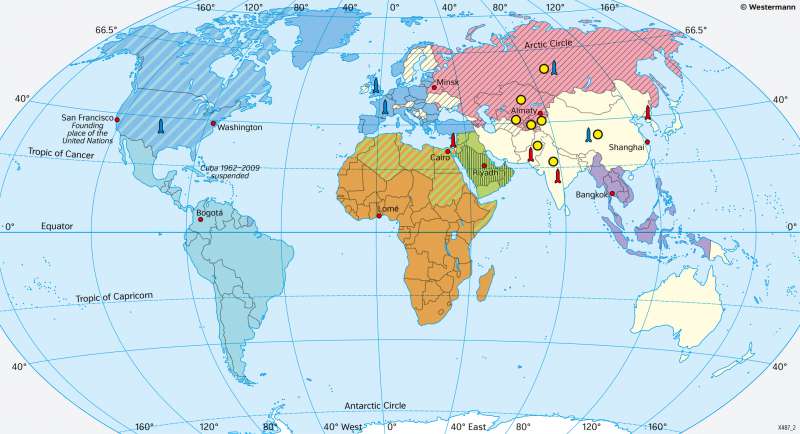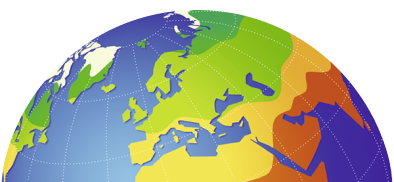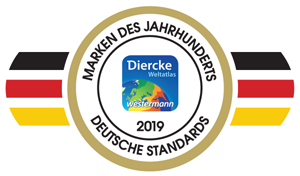The World - Political and military alliances 2020
Alliances since World War Two
978-3-14-100890-6 | Page 33 | Ill. 2

Overview
Since the fall of the alliance structures of the Cold War, NATO has been the most important military alliance on earth. Relying on the "Partnership for Peace", cooperation also includes non-aligned states such as Sweden, Finland, Switzerland, Austria, and Ireland.
NATO and OAS
In Eastern Europe, Russia has largely lost its military influence; numerous states such as Poland, the Czech Republic, Hungary as well as the Baltic republics have joined NATO since 1999. The only Islamic country that is part of NATO is Turkey. The newest member is Northern Macedonia (since March 2020). France and Spain are militarily independent members, Iceland has no armed forces of its own. NATO is headquartered in Brussels, Belgium and was founded in Washington.
On the American continents, the OAS serves as an alliance for joint military protection. Only a few overseas possessions such as French Guyana are not part of the organisation. Cuba, for example, was suspended from 1962 to 2009. In addition to securing the members externally, the OAS is also responsible for intergovernmental conflict resolution. Its seat is in Washington, Bogotá was its founding place.
Arab League, Gulf Council and AU
In addition to the Islamic states of West Asia - excluding Turkey, Iran, Pakistan, Afghanistan, and the Central Asian states - the Arab League also includes those of North Africa, Sudan, Somalia, and the Comoros. Its purpose is to promote cooperation between the countries in the political, economic, cultural, and social fields, to settle disputes between states, and to represent common Arab interests. A central goal is the establishment of a Palestinian state. The Arab League also includes agreements on defence, but like the CIS it is not a military alliance. Its headquarters are in Cairo, Egypt.
The Gulf states of Bahrain, Qatar, Kuwait, Oman, Saudi Arabia and the United Arab Emirates form the Gulf Cooperation Council, or Gulf Council for short, a regional military alliance within the Arab world, based in Riyadh, which focuses on peacekeeping and defence.
The Islamic states of North Africa, like all other states on the continent, are members of the African Union. The African Union is not a military alliance but is rather intended to serve intra-African cooperation and the joint representation of interests to the outside world. Its headquarters are in Addis Ababa, Ethiopia.
Other regional alliances
Regional organisations not shown on the map include the Arctic Council, APEC (Asia-Pacific Economic Alliance), the Non-Aligned States, the British-led Commonwealth of Nations, the EU, the Group of Eight (G8), USMCA and MERCOSUR as American economic alliances, the Maghreb Union (Algeria, Libya, Morocco, Mauritania), the Organisation of the Islamic Conference, the transatlantic OSCE and the ANZUS agreement between the USA, Australia and New Zealand. Beyond the alliances presented, there are numerous examples of further cooperation between individual states (see map 47.3).
Commonwealth of Independent States (CIS)
With the exception of the Baltic republics, Georgia and Turkmenistan, the CIS is identical with the former Soviet Union, but Ukraine's membership is dormant. Its seat is Minsk. The CIS was not primarily intended as a military alliance, but was supposed to simplify political, economic, and cultural cooperation, even if cooperation in the field of defence was also contractually regulated between certain states such as Belarus and Russia. Since the CIS was unable to fulfil the expectations as planned, a number of regional alliances have been concluded between its members since 1996, including the GUAM (Georgia, Ukraine, Azerbaijan, Moldova and Uzbekistan).
Political alliances in Asia
In Southeast Asia, Brunei, Indonesia, Cambodia, Laos, Malaysia, Myanmar, the Philippines, Singapore, Thailand and Vietnam have formed ASEAN, an alliance mainly focused on economic, cultural and social issues, which aims at a similar level as the EU. Not least because of this alliance, some of the participating countries developed strong economic dynamics from the 1980s onwards. One of the declared aims of the alliance is to secure peace. It is based in Jakarta, Indonesia.
Russia, China, India, Pakistan and most Central Asian states (except Turkmenistan) cooperate in the Shanghai Cooperation Organisation (SCO), the second youngest and most populous of the major alliances. Numerous states are linked to the SCO by observer status (4), dialogue partnership (6) or as guest participants (1). The declared priorities are security, the prevention or resolution of conflicts in the region, and political, scientific, and cultural cooperation. Additionally, the alliance holds military manoeuvres. The SCO is based in Beijing.




